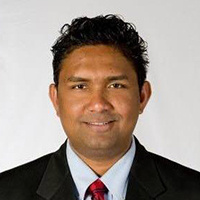 Attleboro RICO Act Lawyers, Massachusetts
Attleboro RICO Act Lawyers, Massachusetts
Sponsored Law Firm
-
 x
x

Click For More Info:
-
Adam P. Beck, M.D., Esq.
25 Marston St Suite 303 Lawrence, MA 01841» view mapAccident & Injury Law Legal Expertise You Can Rely On
By working with lawyers who are also doctors, clients can benefit from advocates who have a deeper understanding of their physical injuries, medical needs, and prognoses.
800-383-8491
Not enough matches for Attleboro RICO Act lawyer.
Below are all Attleboro Criminal lawyers.
Sponsored Lawyers
1-8 of 8 matches
Criminal, Workers' Compensation, Car Accident, Personal Injury, Wrongful Death
Amit Singh’s primary practice is civil and criminal litigation in the State and Federal Courts of Massachusetts and Rhode Island. In addition to working for a prestigious Boston Law firm, He has worked for the District Attorney’s office in Bristol County, MA and has handled over a thousand cases. He has successfully tried fifty-four jury and numerous bench trials. Amit Singh has represented hundreds of clients nationwide at hearings in front of Administrative law judges for social security disability, workers’ compensation and immigration matters, and he is a certified mediator. Attorney Singh handles criminal defense and workers’ compensation and personal injury matters for the firm in both MA and RI. He has represented numerous OUI/DUI & Criminal Defense clients in MA and RI.
(more)


 Adam Beck Lawrence, MA
Adam Beck Lawrence, MA AboutAdam P. Beck, M.D., Esq.
AboutAdam P. Beck, M.D., Esq. Practice AreasExpertise
Practice AreasExpertise

